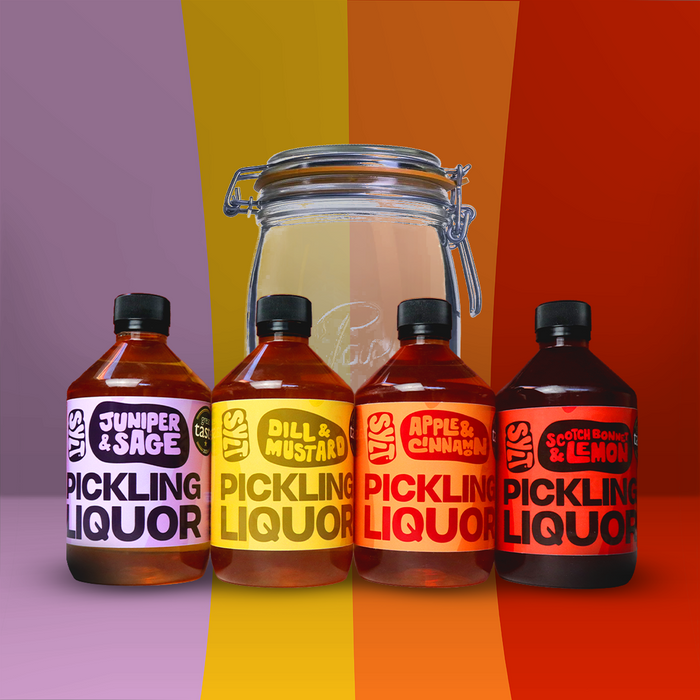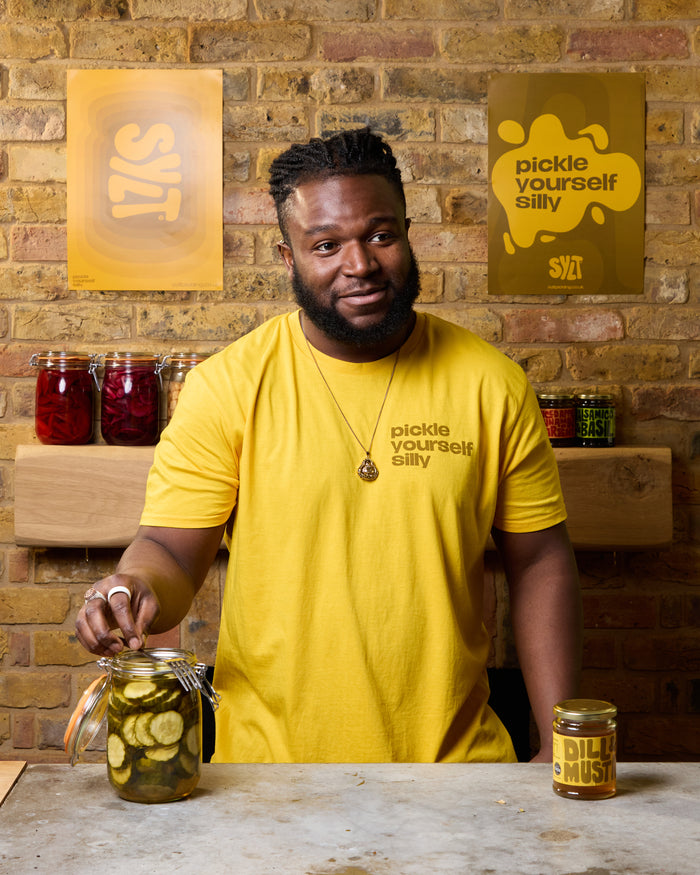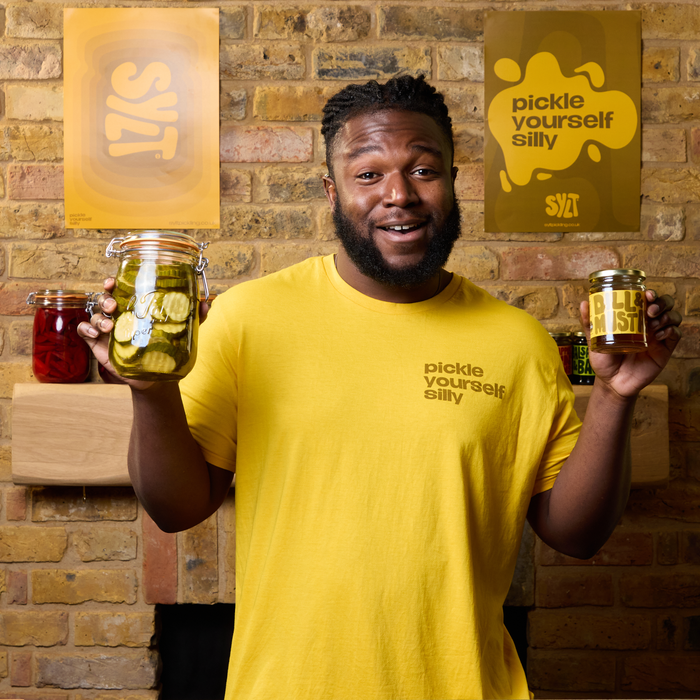· By Aslak Ringhus
How to Choose the right Pickling Vinegar
Choosing the right pickling vinegar is essential for creating pickles that suit your taste preferences and complement your meals. Each type of pickling vinegar you've mentioned brings a unique flavour profile that can enhance different vegetables and dishes. Here's how to choose between them:
- Dill & Mustard Pickling Vinegar: This classic combination is perfect for traditional pickle lovers. The dill provides a fresh, slightly sweet undertone, while mustard seeds add a tangy kick. Ideal for cucumbers, this vinegar can also elevate the taste of pickled beans or carrots. Opt for this if you enjoy pickles with a balance of herbaceous flavours and a hint of spice.
- Scotch Bonnet & Lemon Pickling Vinegar: For those who like it hot, this vinegar is a bold choice. Scotch bonnet peppers offer a fiery heat complemented by the bright acidity of lemon. It's great for pickling vegetables that can stand up to strong flavours, such as carrots or cauliflower. Choose this if you're looking to add a spicy twist to your meals.
- Juniper & Sage Pickling Vinegar: This option brings a woodsy, aromatic quality to your pickles, with juniper berries offering pine-like notes and sage adding a warm, earthy flavour. It's particularly suited for pickling root vegetables like beets or turnips. Select this vinegar if you prefer complex, aromatic flavours that pair well with gamey meats or rich dishes.
- Spiced Apple with Cinnamon & Cardamom Pickling Vinegar: A sweet and warmly spiced option, this vinegar is excellent for fruits and sweeter vegetables like red onions or pumpkins. The apple provides a fruity base, while cinnamon and cardamom add layers of spice. This choice is perfect for creating pickles that double as both a condiment and a dessert topping.
- Balsamico & Basil Pickling Vinegar: This sophisticated blend combines the rich, slightly sweet depth of balsamic vinegar with the fresh, peppery notes of basil. Ideal for elevating simple vegetables like tomatoes or mushrooms, it's suited for those who appreciate a balance of sweetness and herbaceous flavours in their pickles.
When choosing, consider the primary flavours you enjoy and the dishes you plan to accompany with your pickles. Whether you prefer spicy, sweet, herbaceous, or aromatic flavours, there's a pickling vinegar to match your taste and enhance your culinary creations.
2 comments
-
Hi Tom, sorry for the delay in getting back to you here!
1. For beetroot and other root veg, preparing them by cooking does speed up the process. You can pickle it raw, it will just take longer to fully infuse with the flavour and the texture will be firmer. We tend to bake our beetroots beforehand, but boiling will certainly work too.
2. If you are adding any vinegar we would recommend using the vinegar that is in each flavour. The liquids come ready to use, however, so there is no need to add anything beyond for volume purposes. If you need more we also sell 1 litre bottles on the site :)
Happy pickling!
AshSylt Pickling on
-
Just a couple of simple questions;-
1) For veg like Beetroot, should one boil them first or do you simply wash and chop and then immerse in teh Sylt pickling juice
2) I have x 4 relatively small (mug sized) jars of Sylt Pickling vinegar. Is that all I use or should I add more Malt or Wine vinegar to them. If I dont I cant see myself pickling a great deal of produce.
Thanks
Tom Leicester on



